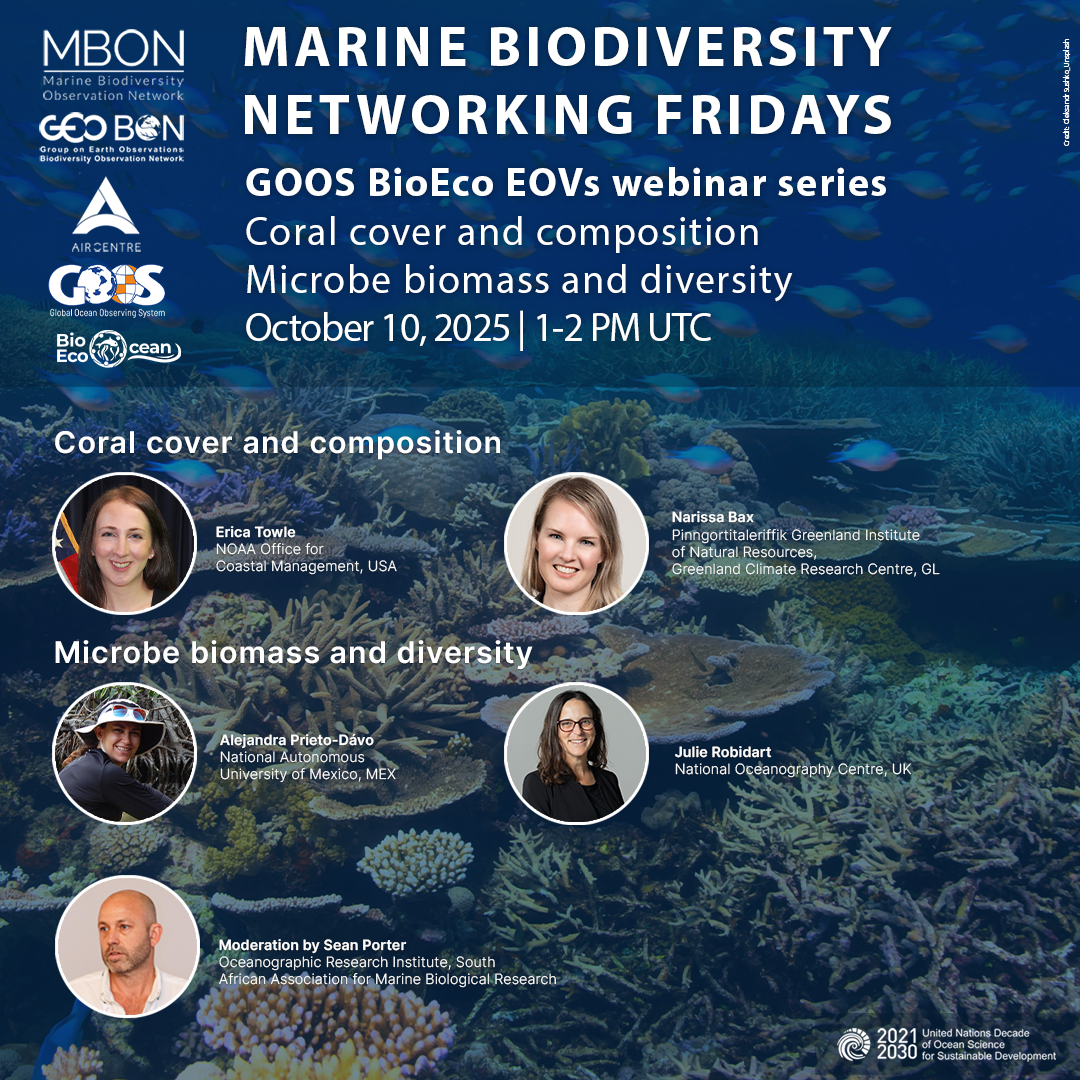

GOOS BioEco EOVs webinar series: Coral cover and composition, and Microbe biomass and diversity
10 October 2025, 1-2 PM UTC
Online
On October 10th, 2025, from 1:00 to 2:00 PM UTC+0, we will have a special session focusing on the coral cover and composition and the microbe biomass and diversity, Biology and Ecosystems Essential Ocean Variables (BioEco EOVs).
GOOS considers coral cover and composition an Essential Ocean Variable (EOV). This webinar will discuss the Coral EOV, its scientific and social value, and how coordinated monitoring can focus global observing. Coral assemblages require custom technology and management, and research is bridging methodological gaps to integrate data across depth ranges. SCUBA can reach warm-water coral species (0-30 m), but most cold-water corals require technical diving, ROVs, AUVs, and submersibles. The mesophotic zone (30-150 m) presents a particular knowledge gap, as it is beyond routine SCUBA limits yet above typical deep submersible operations. By integrating specialised methods across depths, researchers can capture high-resolution imagery, collect physical samples and DNA, and map seafloor terrain to better understand coral community composition, distribution, and health. This data is critical for conservation, policymaking, and sustainable management.
Microbes are essential for ocean health, forming the base of marine food webs and mediating biogeochemical cycling. The impacts of warming, acidifying and deoxygenating oceans on changes in, and distributions of, key microbial functions such as carbon sequestration and vitamin and nutrient provision remain uncertain. At the same time, marine microbes are genomically diverse, comprising approximately 80% of Earth’s biodiversity, and often morphologically indistinguishable. The microbe biomass and diversity EOV points to protocols and data portals to address this challenge by better alignment of microbial observations and reporting, contributing data that can be used in climate-scale models and for decision-making. This webinar will present exemplars to underscore the impacts of large-scale microbial observations, and what can be achieved with coordinated taxonomic, genomic and functional annotations and analyses of marine microbes.
Join us to discover how coral and microbe data can play a crucial role in protecting marine ecosystems.
For more information, please visit the AIR Centre website.